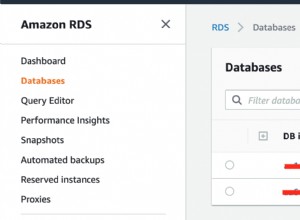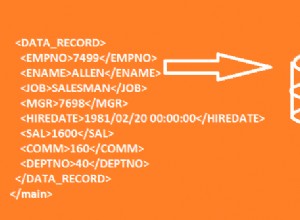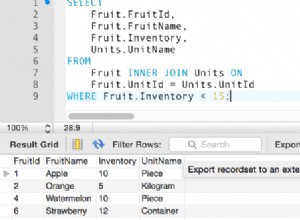OK, voici une solution complète :
<!DOCTYPE html><html><head>
</head><body>
<div id="container" style="height: 400px; width: 900px"></div>
<script src="https://ajax.googleapis.com/ajax/libs/jquery/1.7.2/jquery.min.js"></script>
<script src="http://www.highcharts.com/js/highcharts.src.js"></script>
<script>
jQuery(function($) {
var options = {
chart: {renderTo: 'container', defaultSeriesType:'spline', height: 400},
title: {text: 'SEN-2 Bulkhead Isolation'},
xAxis: {title: {text: 'Frequency Hz'}, type: 'logarithmic'},
yAxis: {title: {text: 'Isolation dB'}, plotLines: [{ value: 0, width: 1, color: '#808080'}]},
tooltip: {
formatter: function() {
return '<b>'+ this.series.name +'</b><br/>'+'('+this.x +' : '+ this.y +')';
}
},
legend: {layout: 'vertical', align: 'right', verticalAlign: 'top', x: 40, y: 100, borderWidth: 0, width: 300 },
series: []
};
jQuery.get('data2.php', null, function(tsv) {
var data = {};
tsv = tsv.split(/\n/g); // split into rows
for (var row=0, rows=tsv.length; row<rows; row++) {
var line = tsv[row].split(/\t/g), // split into columns
series_name = line[0],
x = Number(line[1]),
y = Number(line[2]);
if (!data[series_name]) data[series_name] = [];
data[series_name].push([x,y]);
}
for (var series_name in data) {
options.series.push({
name: series_name,
data: data[series_name]
});
}
new Highcharts.Chart(options);
});
});
</script>
</body></html>
Je l'ai testé avec ces données TSV :
SSTP Keystone STEEL 0.6 74.9
SSTP Keystone STEEL 0.895 81.74
SSTP Keystone STEEL 1.336 77.26
SSTP Keystone STEEL 1.993 76.81
SSTP Keystone STEEL 2.974 80.45
SSTP Keystone STEEL 4.438 69.41
SSTP Keystone STEEL 6.622 61.37
SSTP Keystone STEEL 9.881 79.07
SSTP Keystone STEEL 14.744 79.75
SSTP Keystone STEEL 20.000 72.33
Ce que je fais, c'est parcourir le TSV et construire les data variable comme un tableau associatif indexé sur le nom de la série, comme ceci :
{
'SSTP Keystone STEEL': [[0.6,74.9],[0.895,81.74],...],
...
}
Ensuite, je parcoure les data variable et construction de options.series dans le format attendu par HighCharts - un tableau d'objets avec un name propriété et une data propriété.




